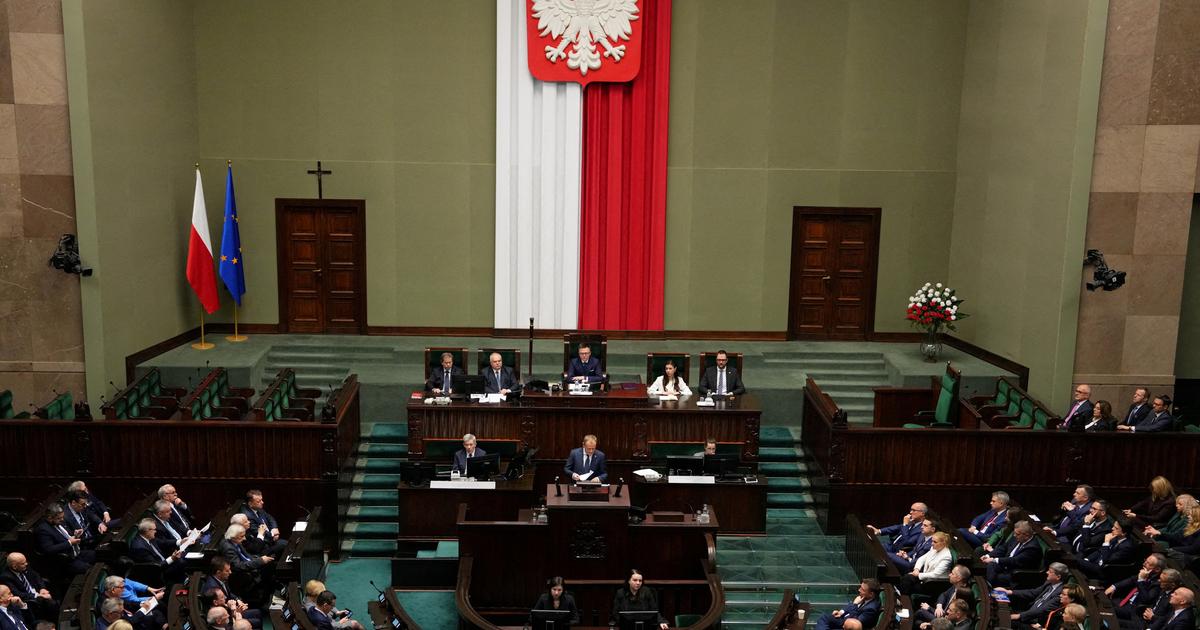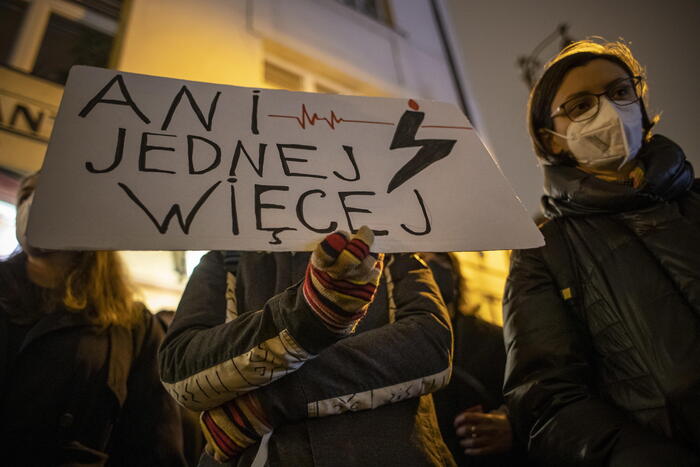Poland has taken a further step on Thursday to limit women's reproductive rights.
The Constitutional Court, controlled by judges related to the party in the Government Law and Justice (PiS), has issued a ruling in which it considers the interruption of pregnancy unconstitutional in the event that the fetus suffers a malformation or irreversible disease.
To date, this was one of the three assumptions allowed in the already restrictive Polish legislation and represented around 98% of the 1,100 abortions carried out legally in the country last year, according to civil organizations.
Dozens of women gathered in front of the court on Thursday during the magistrates' deliberation.
The decision comes from the request of a group of 119 conservative deputies, mostly belonging to the ultraconservative PiS, who in December 2019 presented the motion before the Constitutional Court.
During the reading of the ruling, according to Reuters, the president of the Court, Julia Przylebska, agreed with them, considering that a provision that “legalizes eugenic practices in the field of the right to life of a child who is going to be born and does that his right to life depends on his health, which constitutes direct discrimination, (...) is inconsistent (...) with the constitution ”.
The Polish Family Planning law of 1993 was already among the most restrictive in Europe - only behind Malta, San Marino and Andorra, where abortion is not legal under any circumstances - and allowed this practice, in addition to the case of fetal malformation, if the pregnancy was the product of rape or incest and when the mother's life was in danger.
From the International Family Planning Federation in Europe (IPPF) they highlight the seriousness of the failure.
“It is not just about rights,” says Irene Donadio, IPPF spokesperson, “with this decision we are putting women's health and lives at risk,” she says.
The IPPF also denounces that access to abortion in the other two cases is much more complicated in practice.
“It is one more step towards obscurity, in line with the request of some deputies a few months ago to withdraw Poland from the Istanbul Convention [the Council of Europe convention on preventing and combating violence against women and domestic violence] ”, He insists.
The Court's ruling, civil organizations denounce, reveals once again the lack of independence of the judges.
For Malgorzata Szuleka, a lawyer for the Helsinki Foundation for Human Rights, from a legal point of view the main problem lies in the composition of the Constitutional Court.
"Among the magistrates who are judging today, there are three who were appointed by the Parliament - controlled by PiS - without a valid legal basis."
In the last four years, Szuleka points out, all politicized cases were resolved in line with the opinion of the ruling party.
In addition, the media have repeatedly pointed to the friendship between the president of the Court and the leader of the PiS and current deputy prime minister, Jaroslaw Kaczynski.
The problem is not new either.
The successive judicial reforms carried out by Law and Justice since they came to power in 2015 have pitted the Executive against the European Union, which considers that they endanger the rule of law in the country by undermining the separation of powers.
Last April, the European Court of Justice suspended the action of the body created in 2017 to apply a disciplinary regime to judges, since it considered that it did not guarantee the independence or impartiality of the system.
“When all of Europe goes in one direction, in Poland, in this undemocratic way, it goes towards the other”, says Donadio, who advocates a community solution to stop the “Polish drift”.
“Today it is Poland, but tomorrow it could be any other member of the EU.
We need a much stronger mechanism to protect citizens ”, he points out in reference to linking European funds and the budget with compliance with the rule of law.
According to an IBRiS poll collected by Europa Press, around 50% of Poles support current abortion legislation.
In a country where more than 92% of its 38 million inhabitants are Catholic, almost 30% would favor the relaxation of the law, while another 15% would like access to the termination of pregnancy to be completely prohibited.
Despite the contrary opinion reflected in the polls, this is not the first attempt to restrict abortion in Poland.
Already last April, during the first wave of the covid-19 pandemic and when public gatherings were prohibited, Congress debated a bill (a citizen initiative of the pro-life organization Stop Aborto that had been paralyzed in the lower house since 2018) to eliminate the assumption of fetal malformation from the legislation.
Without breaking the constraints, the women organized via the Internet, honked their cars in synchronization in protest, and demonstrated while queuing outside the shops.
At that time, the PiS chose to park the procedure by voting in favor of sending the proposal to the parliamentary committee.









